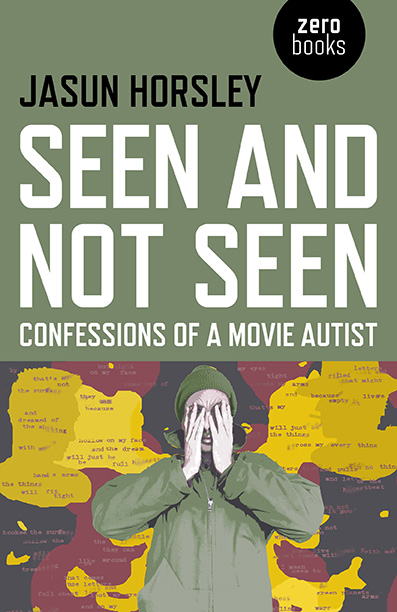“Like a magnet, or black hole, your book has demonstrated the capacity to draw other texts helplessly into its space. As Borges said of Kafka, the best books create their own lineages and predecessors, out of formerly unrelated texts.”
~Jonathan Lethem (Afterword)
a must read for anyone interested in how we have all been programmed by popular culture, particularly by the film industry. ~ Nalyd Khezr Bey
What’s the difference between entertainment, instruction, and ideology?
Popular culture mirrors the human psyche and it can’t lie about the state it is in: which is what makes it an essential guide on the quest for self-knowledge. Seen and Not Seen: Confessions of a Movie Autist is a series of explorations which slowly uncover the author’s secret life to himself. In the process, the book reveals an unexpectedly dark underbelly to popular culture and shows how it shapes our identities from an early age, in ways both intentional and not.
Moving into and through the social and political dimensions of movies, the book examines the Hollywood revenge fantasy, the military-entertainment complex, and how American movies have become weaponized. In the final chapters, with reference to the infamous UK disc jockey Jimmy Savile and crucified artist Sebastian Horsley, it examines the relationship between escapism and dissociation, trauma and celebrity, to reveal unsuspected political, psychological, and spiritual realms to the entertainment industry, and, by extension, to the movie-going experience.
“Horsley’s book is indeed a confession, full of the kind of frank talk one would expect in a tale touted as confessional. In fact, in places the book is jaw-dropping in its raw honesty and relentless self-critical insight. Here is a writer not the least interested in marrying his auteur self to a poseur self.… I would go so far as to say to everyone, but especially adolescents and young adults, that Horsley’s book can serve well as “the bible” for how to navigate through the treacherous shoals of popular culture, particularly in the form of violent screen entertainment.” ~Gregory Desilet, author of Our Faith in Evil and Screens of Blood


